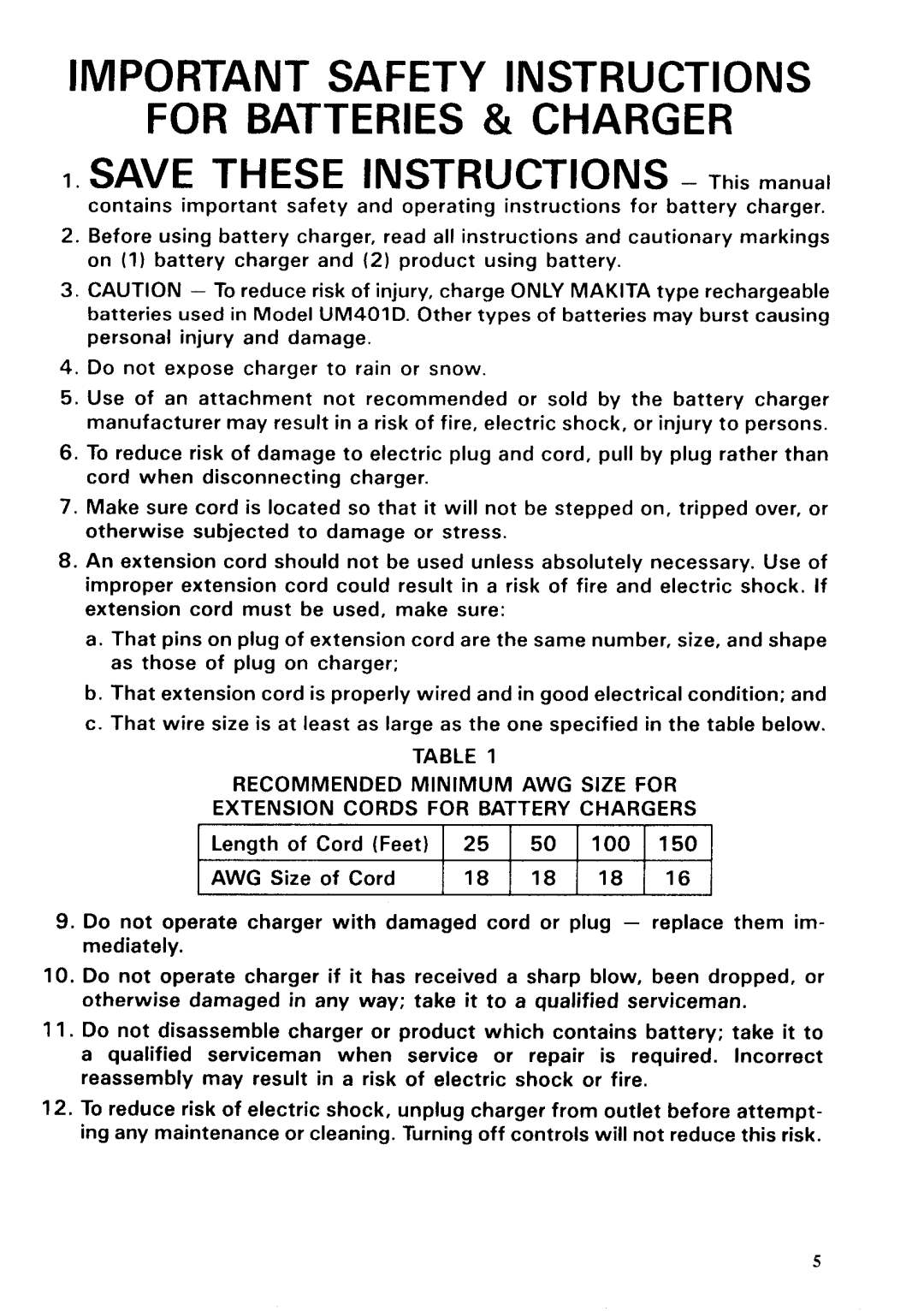
IMPORTANT SAFETY INSTRUCTIONS
FOR BATTERIES & CHARGER
I. SAVE THESE INSTRUCTIONS - This manual
contains important safety and operating instructions for battery charger.
2.Before using battery charger, read all instructions and cautionary markings on (1) battery charger and (2)product using battery.
3.CAUTION - To reduce risk of injury, charge ONLY MAKITA type rechargeable batteries used in Model UM401D. Other types of batteries may burst causing personal injury and damage.
4.Do not expose charger t o rain or snow.
5.Use of an attachment not recommended or sold by the battery charger manufacturer may result in a risk of fire, electric shock, or injury t o persons.
6.To reduce risk of damage t o electric plug and cord, pull by plug rather than cord when disconnecting charger.
7.Make sure cord is located so that it will not be stepped on, tripped over, or otherwise subjected t o damage or stress.
8.A n extension cord should not be used unless absolutely necessary. Use of improper extension cord could result in a risk of fire and electric shock. If extension cord must be used, make sure:
a.That pins on plug of extension cord are the same number, size, and shape as those of plug on charger;
b. That extension cord is properly wired and in good electrical condition; and c. That wire size is at least as large as the one specified in the table below.
TABLE 1
RECOMMENDED MINIMUM AWG SIZE FOR
EXTENSION CORDS FOR BATTERY CHARGERS
I Length of Cord (Feet) I 25 1 50 I 100 I 150 I
I A W G S i z e o f Cord I 18 I 18 1 18 I 16 1
9.Do not operate charger with damaged cord or plug - replace them im- mediately.
IO. Do not operate charger if it has received a sharp blow, been dropped, or otherwise damaged in any way; take it t o a qualified serviceman.
11 . Do not disassemble charger or product which contains battery; take it t o a qualified serviceman when service or repair is required. Incorrect reassembly may result in a risk of electric shock or fire.
12.To reduce risk of electric shock, unplug charger from outlet before attempt- ing any maintenance or cleaning. Turning off controls will not reduce this risk.
5
